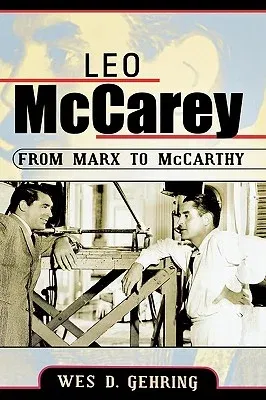Early in his Hollywood career, Leo McCarey honed his skills by working
with some of the great names of comedy, including Laurel and Hardy, W.C.
Fields, and The Marx Brothers, whose 1933 classic, Duck Soup, McCarey
directed. Later, as a writer and/or director, McCarey was responsible
for a number of classic films, including Ruggles of Red Gap, The Awful
Truth, Love Affair, Make Way for Tomorrow, My Favorite Wife, and An
Affair to Remember. McCarey's 1944 film Going My Way was nominated for
ten Academy Awards and won seven, including the first triple crown
awarded to the same person for writing, producing, and directing. Its
sequel, The Bells of St. Mary's, would receive eight nominations,
including Best Picture and Director. Despite all of his commercial and
artistic successes, McCarey has been sadly neglected by film historians
and scholars. While many of his contemporaries have been elevated to
auteur status, McCarey's contributions to film have not sparked the same
level of interest or esteem. Film scholar Wes Gehring seeks to rectify
this with Leo McCarey: From Marx to McCarthy, the first full-length
biography of this underappreciated artist. By exploring the director's
life as filtered through his art, Gehring maintains that McCarey's films
were often a reworking of his antiheroic self. In addition, the apparent
diversity of his films actually represents an interrelated web of
various comedy genres and a pattern of antiheroic characters and themes.
The author makes the convincing case that throughout his life and
career, McCarey was driven to entertain any audience, from a single
person to movie millions, always trying to tell a better story.
McCarey's own, long overdue story is finally revealed in this biography
about one of the most fascinating figures to ever come out of the
Hollywood dream factory.

